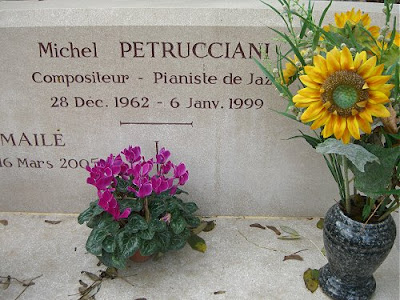In a Persian market

Marjane Satrapi's exquisite animated film Persepolis was made in France, where Satrapi has lived for twenty years, and where the autobiographical graphic novel on which the film was based, was first published. Satrapi was born in Iran and the film hauntingly portrays Satrapi's life during and after the 1979 Iranian revolution, the 30th anniversary of which is currently being celebrated, and her time in exile in Europe after the revolution. The film has generated protests from the present Iranian government. But it also highly critical of the previous regime and alledges that the torturers employed by the Shah were trained by the CIA, and claims that both Iran and Iraq were financed by the West in the war between the two countries. Approaches from Hollywood studios to participate in the production were rebutted, but distribution is handled by Sony Pictures.

The classical music world has also been involved in the shadowy world of Iranian politics. In a recent article I told how EMI became involved in a mysterious and abortive recording project in the last days of the Shah's regime. Conductor , some-time Karajan assistant and Honegger advocate Alexander Rahbari was born in Iran, but left before the revolution. But western classical music lives on in Iran today. American composer and blogger Jeff Harrington reports that the Iranian conductor Keyvan Yahya is planning to perform his First and Second Symphonies with the Tehran Symphony Orchestra. The orchestra's recent work has included a concert to commemorate the late Ayatolla Khomeini. There is very little information on the conductor; however an unverified Wikipedia entry states:
'In 2007, Keyvan Yahya, young mathemician and musician that has done many works on mathematical foundations of music theory and his special field image processing, established a symphony orchestra named Satrap Philharmonic Orchestra,this orchestra performs some classical and modern music by western composer and also concerns Persian symphonic pieces in its repertoire. He composed a divertimento for strings that performed by the National Ukraine Symphony Orchestra conducted by Vladimir Sirenko.'It is excellent news that contemporary music is now being programed in Iran. However, 30 years after the revolution, the cultural climate in the country remains fragile. In the last week the British Council has been forced to close its educational and cultural centre in Tehran due to harassment of its staff. Marjane Satrapi's film, quite rightly, highlights the plight of women in present day Iran. But the treatment of homosexuals is equally unacceptable. Since the 1979 revolution an estimated 4,000 people have been executed for the crime of lavaat, or sex between men. R. Timothy Brady's opera Edalat Square brought to the lyric stage the tragic story of two gay teenage Iranians who were executed in 2005.

Now read about contemporary music in Albania.
Image credits Sony Pictures. Any copyrighted material on these pages is included as "fair use", for the purpose of study, review or critical analysis only, and will be removed at the request of copyright owner(s). Report broken links, missing images and errors to - overgrownpath at hotmail dot co dot uk






Comments